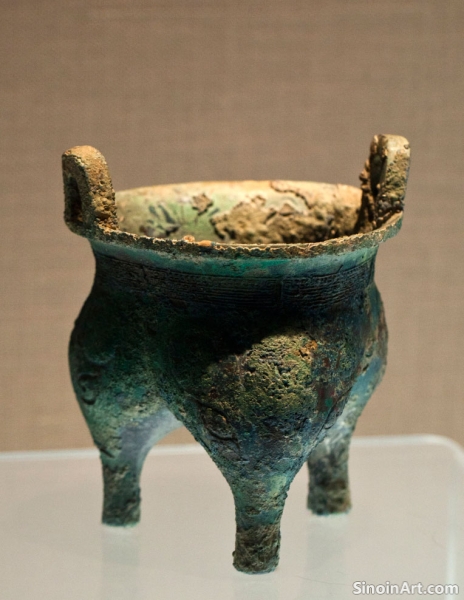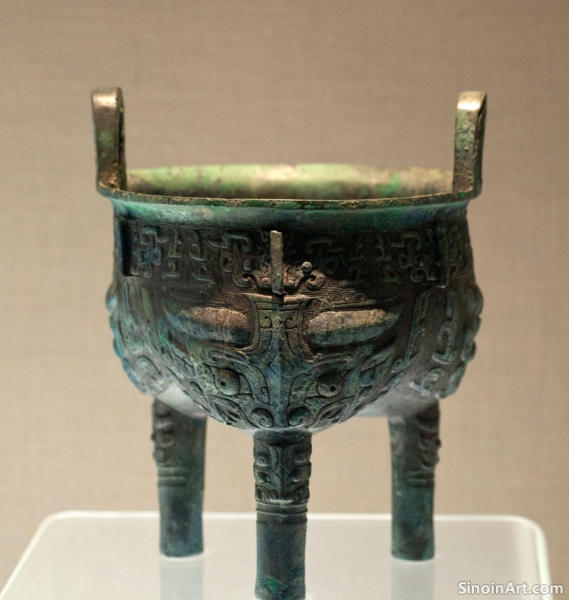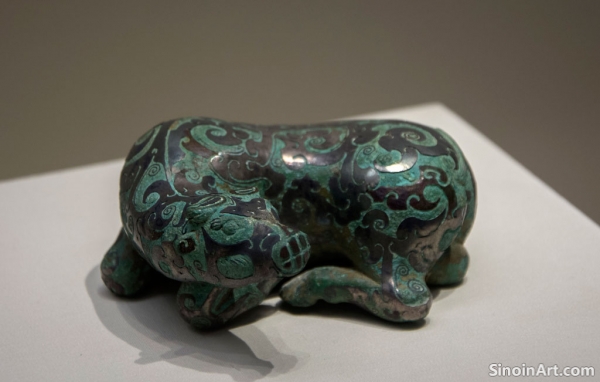The Impact of Bronze Ware on Ancient Chinese Society: A Social Perspective
|
Bronze ware was not just a collection of objects; it was a powerful force that shaped ancient Chinese society. The production, distribution, and use of bronze ware were deeply intertwined with social structures, political power, and religious beliefs. The importance of bronze in Chinese society highlights its impact on both the social and political orders of the time.  The possession and control of bronze, especially ritual vessels and weapons, was a primary indicator of social status and political authority. High-ranking nobles and rulers often amassed large collections of bronze, which served as markers of their position in the social hierarchy. The ownership of bronze helped to establish one’s position within ancient Chinese society.  The creation of bronze ware also required a complex social organization, including specialized workshops, skilled artisans, and a system for procuring and distributing materials. The bronze industry was a complex undertaking that reflected the large-scale societal structure in ancient China. The bronze industry was a testament to the organizational skills of ancient China.  The use of bronze in ancestral rites and other religious ceremonies reinforced social hierarchies and cultural values. Bronze helped to enforce social norms and establish traditions that continue to be influential to this day. The careful management of rituals helped to reinforce the traditions of the era. The impact of bronze on ancient Chinese society was profound, leaving an enduring legacy that continues to shape our understanding of this fascinating period in history. The study of bronze is key to understanding not only the artistic but also the social and political realities of ancient China. The cultural legacy of bronze is still influential today. |
Tag : bronze and ancient society, Chinese social structures, bronze power, ancient politics, cultural impact
Related information
- Bronze Ware and Ancient Chinese Astronomy: Celestial Charts and Observational Tools
- Bronze Ware and the Development of Ancient Chinese Astronomy: Instruments, Charts, and Cosmological Beliefs
- Regional Styles of Bronze Ware: Exploring the Diversity of Ancient China
- Preserving Chinese Bronze Ware: Challenges and Methods of Conservation
- Bronze Ware and Trade Networks in Ancient China: Exchange and Interaction
This article explores the use of bronze in ancient Chinese astronomy, focusing on the creation of armillary spheres, sundials, and other observational tools, demonstrating the integration of art, technology, and the ancient quest to understand the cosmos.
This article explores the interplay of bronze ware and ancient Chinese astronomy, highlighting the creation of observational tools, the symbolic representation of celestial bodies, and how bronze helped to express ancient beliefs about the universe.
This article explores regional styles of bronze ware in ancient China, highlighting the distinct forms, designs, and techniques found in different areas, including the Central Plains, the Yangtze Valley, and the northern regions, revealing the diversity of ancient Chinese culture.
This article discusses the challenges and methods of conserving Chinese bronze ware, highlighting the vulnerability to corrosion, the specific techniques used for cleaning and preservation, and the overall importance of safeguarding these artifacts for the future.
This article explores the role of bronze ware in ancient Chinese trade networks, highlighting its importance as a trade commodity, its contribution to the exchange of cultural ideas, and its role in connecting different regions of China.